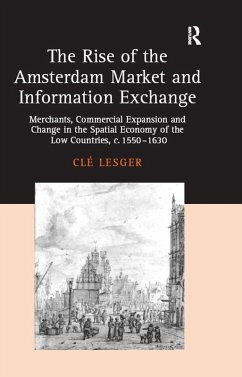
Centres and Peripheries in Banking (eBook, PDF)
The Historical Development of Financial Markets
Redaktion: Cottrell, Philip L.
Versandkostenfrei!
Sofort per Download lieferbar
56,95 €
inkl. MwSt.
Weitere Ausgaben:

PAYBACK Punkte
28 °P sammeln!
This volume presents a broad investigation into the relationship between the centre and the periphery in banking. Focusing on the historical development of financial markets, from their emergence in the early modern period to today's global financial and capital markets, the chapters investigate how local, national and international relationships have affected and helped shape the banking industry over three-hundred years. This wide-ranging discussion in time and place is provided by a group of international experts, encompassing bankers, economists, economic historians and historians, and wil...
This volume presents a broad investigation into the relationship between the centre and the periphery in banking. Focusing on the historical development of financial markets, from their emergence in the early modern period to today's global financial and capital markets, the chapters investigate how local, national and international relationships have affected and helped shape the banking industry over three-hundred years. This wide-ranging discussion in time and place is provided by a group of international experts, encompassing bankers, economists, economic historians and historians, and will be of interest to all those with a scholarly or professional interest in the development of financial institutions.
Dieser Download kann aus rechtlichen Gründen nur mit Rechnungsadresse in A, B, BG, CY, CZ, D, DK, EW, E, FIN, F, GR, HR, H, IRL, I, LT, L, LR, M, NL, PL, P, R, S, SLO, SK ausgeliefert werden.













